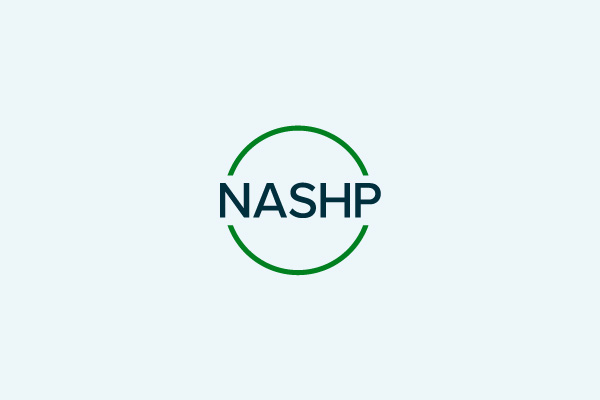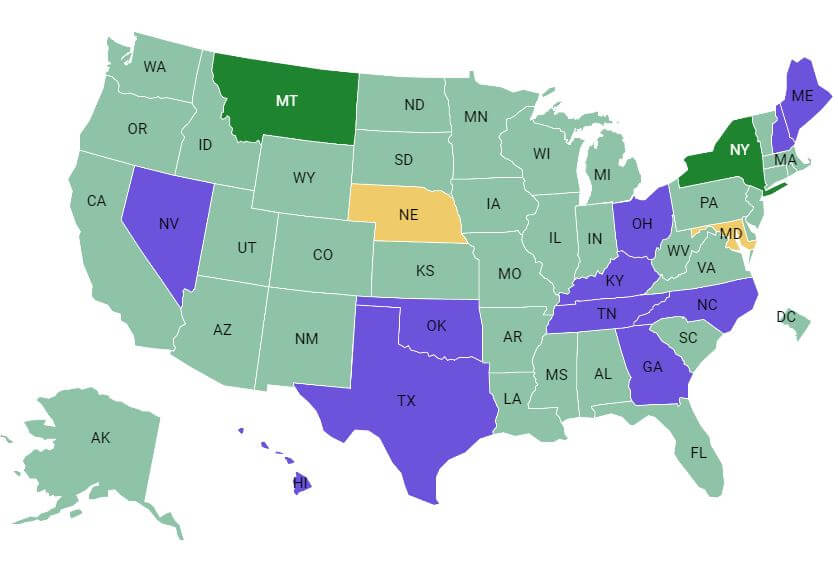As states begin to receive funds from opioid-related legal settlements, policy makers and leaders are defining processes for allocation and oversight of these dollars. In addition to considerations for how opioid abatement funds will be spent, states are also considering parameters and mechanisms for long-term administration, including who will compose decision-making bodies, how dollars can be requested, and how spending will be reported.
These charts, which outline how Kansas, Maine, and Pennsylvania are administering opioid settlement funds, come as the beginning of NASHP’s work tracking how states are approaching the organization and operationalization of their opioid settlement funds.
Kansas
| Allocation | 75% Kansas Fights Addiction Fund (state) 25% Municipalities Fights Addiction Fund (local) |
| Oversight of Statewide Funds | Kansas Fights Addiction Grant Review Board oversees the Kansas Fights Addiction Fund’s 75% allocation and is administered by the Attorney General (AG). The review board is composed of 11 members “who have expertise in the prevention, reduction, treatment or mitigation of the effects of substance abuse and addiction” including the chair, who is appointed by the AG, and one appointee by each of the following: the governor, the president of the senate, the speaker of the house of representatives, the minority leader of the senate, the minority leader of the house, the league of Kansas municipalities, the Kansas association of counties, the Kansas association of counties, the Kansas county and district attorneys association, the association of community mental health centers of Kansas, and the behavioral sciences regulatory board. |
| Authority | HB 2079 establishes the Kansas Fights Addiction Fund and allocations. Memorandum of Understanding (MOU) between AG, League of Kansas Municipalities, and the Kansas Association of Cities, outlines further details regarding distribution. |
| Parameters/Purpose for Statewide Funds | $200,000 annually for prescription monitoring program (PMP) fund. At least 1/8 of the total funds granted must be used for services in each of the states congressional districts. “Approved purposes” for grant funds are defined in the MOU as “projects and activities, including, but not limited to law enforcement, that prevent, reduce, treat, or mitigate the effects of substance abuse and addiction or to reimburse the State or Political Subdivisions for previous expenses related to substance abuse mitigation or arising from covered conduct…” |
| Reporting/Grant Information | The Kansas Fights Addiction Grant Review Board must submit annual reports to the speaker of the house, president of the senate, AG, and governor on the board’s activities including accounting, a summary of the approved grants, and an explanation of the board’s actions. The Kansas Fights Addiction Grant Review Board will process and administer grants to qualified applicants for “approved purposes.” At least six votes from the board are required to approve each grant. |
Maine
| Allocation | 20% Attorney General 50% Maine Recovery Fund 30% Counties and municipalities who filed litigation OR have over 10,000 residents |
| Oversight of Statewide Funds | Office of the Attorney General oversees the AG’s 20% allocation. The Recovery Fund Council oversees the Maine Recovery Fund’s 50% allocations. The Recovery Fund Council is composed of two governor appointees, speakers of the house and senate (or their designees), and three appointees by the attorney general including an individual with lived experience with SUD and the recovery community, a family member impacted by the opioid epidemic, a public health expert, and up to eight additional appointees by the legislature. The Recovery Council is responsible for the administration and disbursement of all recovery funds. The Recovery Council is directed to make decisions by consensus. If consensus is not reached, a 3/5 majority is required. |
| Authority | MOU between the Attorney General and certain subdivisions creates recovery fund and allocations. MOU between AG and school districts. |
| Parameters/Purpose for Statewide Funds | Maine’s MOU defines “approved uses” of settlement funds as the approved uses outlined in the National Settlement agreement and does not further limit or direct the usage of these funds. The Recovery Council has broad discretion on how to use these funds, though 3% must be used to address abatement in special education programs in the form of grants to Maine school administrative units. Funds may be used for activities including, but not limited to, hiring direct support staff for special education programs, creating multidisciplinary programs between schools and medical or social services providers, and developing models on how to incorporate opioid abatement activities in special education programs. |
| Reporting/Grant Information | The Recovery Council is responsible for creating a public dashboard/repository of expenditure data from any party or regional council that receives recovery funds. Recipients of settlement funds, whether state agency, county, city, contractor, or vendor, must submit an annual report to the Commissioner of Administrative and Finance Services describing how the funds were used in the previous year for prevention and health-related purposes. |
Pennsylvania
| Allocation | 15% to statewide allocation 70% to counties based on combined metrics of overdose deaths, opioid use disorder hospitalizations, naloxone administrations, and percentage of opioid shipments, with each county receiving at least $1M 15% to litigating counties, subdivisions, district attorneys, and special districts |
| Oversight of Statewide Funds | The statewide allocation is overseen and allocated by the legislature. |
| Authority | 2021 Act 24, establishes the Opioid Settlement Restricted Account, within the general fund, and provides that interest earned be deposited back into the account. |
| Parameters/Purpose for Statewide Funds | Pennsylvania links to the National Settlement Agreement’s “approved uses” for settlement funds. |
| Reporting/Grant Information | N/A |
The author would like to thank the Foundation for Opioid Response Efforts (FORE) which provided grant support to NASHP for the State Opioid Policy Center. The views and conclusions contained in this document are those of the authors and should not be interpreted as representing the official policies or stance, either expressed or implied, of FORE.



